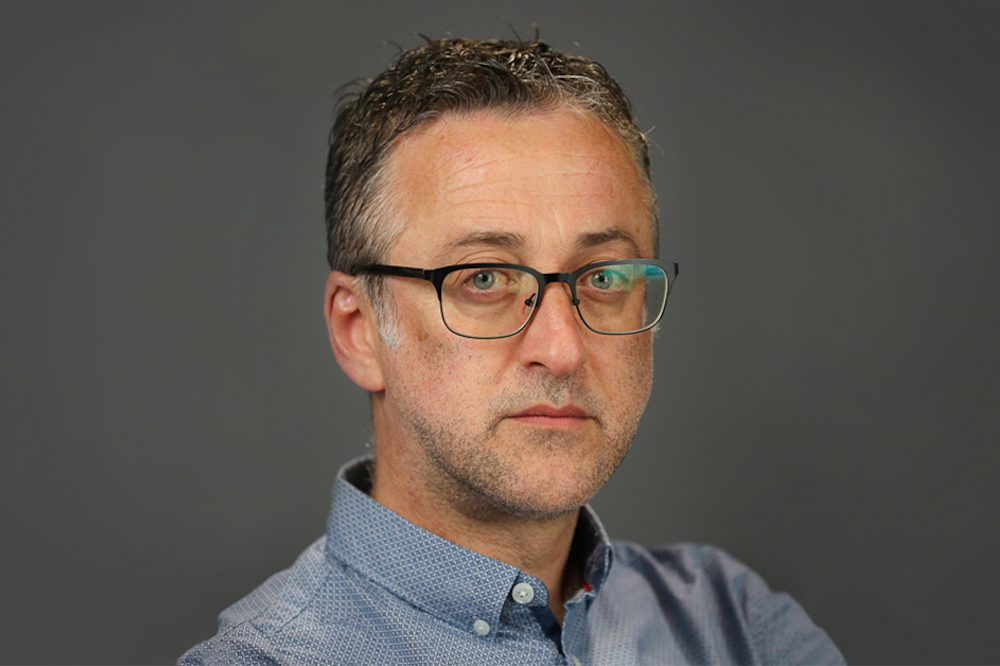
Courtesy of David Altman.
David Altman is professor of political science at the Pontificia Universidad Católica de Chile, and has twice received the Uruguayan National Prize of Political Science. He is the author of Citizenship and Contemporary Direct Democracy and of Direct Democracy Worldwide. Before speaking at a Zócalo/Global Forum on Modern Direct Democracy event, titled “Should Global Democracy Become More Direct?,” he talked in the virtual green room about Argentine rock, Peruvian food, and how he and his mother once helped defeat a dictatorship.
What’s the last book you read?
Revolutionary Yiddishland: A History of Jewish Radicalism by Alain Brossat and Sylvia Klingberg. It’s about the Bund, the first socialist party in Tsarist Russia. It was really a Jewish Union movement, quite Marxist, and the largest socialist party before the revolution. These guys were exactly in the middle of the Zionist movements on one hand, and on the other hand, the assimilationist movements of the Jewish people. They were socialist Marxists, but they were basically fighting for some spiritual autonomy.
What’s the biggest misimpression the world has about Chile, where you have long lived and taught?
There is a dissonance between the international image of Chile and what we have seen in the last year in terms of state capacity. I tend to believe that the image people have is that Chile is a powerful developed state within Latin America. But if you see how the government and the state have behaved during the social uprisings since last October, and throughout the pandemic, there are so many holes.
What’s your biggest pet peeve?
Not being treated justly. Especially when someone says, “You didn’t say so,” when you did. For example, I tell you to clean the bathroom, and you don’t. And I say: “I told you that you had to clean the bathroom.” And your response is: “No, you told me to clean the bedroom.”
What is the most common question your students ask you?
“Can we have more time for the exam?”
Your undergraduate degree is from Hebrew University. What’s the best part about going to college in Jerusalem?
The truly international multi-ethnic, multi-linguistic, multi-religious, multi-everything-you -could-dream in a small city of half a million inhabitants. And the university is a microcosm of that environment.
Besides family and friends, what do you miss most about your home country of Uruguay?
The public spaces, especially on the coast. To walk on the sea coast and to have this immense scene of the sea right there in the city. There are 20 kilometers of sea coasts in Montevideo that you can bike and skate and walk. That is freedom.
You got your PhD at Notre Dame. What’s your strongest memory of South Bend?
The campus itself; it was one of the most beautiful campuses I’d ever seen. Life also was quite affordable for being a grad student—and they had good Thai food.
What song is sure to get you out on the dance floor?
There are a couple Argentinian rock singers—like Fito Paéz or Charly Garcia—who I really like.
What is your favorite meal?
I’m crazy about Peruvian and Spanish cuisines … If I say Japanese, I’d be truthful, but I’m playing you because Peruvian has a lot of Japanese influences. So, if your question is, if you had to go to an island and eat just one cuisine for a month, probably I would pick up Peruvian.
What was the first time you used direct democracy?
I was 12 years old, and Uruguay was in a dictatorship government, and the military dictatorship put up a new constitution for a plebiscite. It was November 1980, and I went with my mother to vote. My father had told me that he and my mother were going to vote against the military, but that I could not tell anybody. When I asked why, he said that sometimes the “bad guys” govern, but that he and my mother did not want that kind of future for Uruguay. I then asked him why the good guys weren’t governing, and he looked perplexed. My confusion was later exacerbated when the military accepted its disastrous defeat in that vote.
What’s the world’s best direct democracy?
It’s the one you don’t see. Because you don’t need it. You know, we need representation. We humans can’t govern ourselves in a daily fashion. So if a representative democracy is really smooth and practical, there is no need to use the direct democracy.
Of all the places on earth that you haven’t seen, which one would you most like to visit?
Probably India. Because it’s so big, so important, so influential, and so different from what I’m used to. I’m talking about the whole Indian continent—including Nepal and Sri Lanka. And it drives me crazy when I see documentaries on National Geographic or the History Channel about India, and imagine all the different smells and different colors. It would be a whole new experience.



